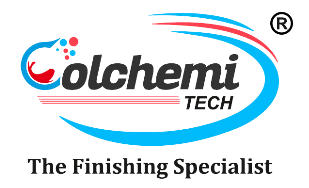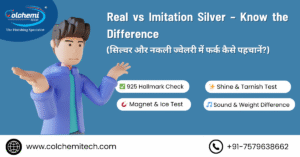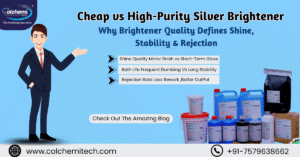Introduction
In today’s competitive manufacturing world, the right chemical supplier can make all the difference between smooth operations and costly downtime. Whether you are in electroplating, surface finishing, or specialty manufacturing, choosing the right partner is not just about price — it’s about quality, reliability, and long-term trust.
Before making a decision, here are the top questions every buyer should ask when selecting a chemical supplier.
1. What Quality Standards Do You Follow?
Consistency is key in chemicals. Always check if the supplier follows ISO certifications, lab testing protocols, or international quality standards. This ensures that every batch you receive will perform the same way in your production line.
2. Do You Provide Technical Support and Guidance?
A reliable supplier is not just a seller but a partner in problem-solving. Ask whether they provide:
- Technical consultation
- On-site troubleshooting
- Guidance for using additives correctly
This is especially important in industries like electroplating, where small mistakes can lead to major defects like burning or peeling.
3. How Transparent Are You About Chemical Composition?
Hidden ingredients can create performance issues. A good supplier should share:
- Clear MSDS (Material Safety Data Sheets)
- Chemical composition details
- Safe handling instructions
Transparency builds trust.
4. What Is Your Supply Chain Reliability?
Downtime due to late deliveries can cost businesses huge losses. Buyers should ask:
- Do you maintain buffer stock?
- What is your average delivery time?
- How do you handle urgent or bulk orders?
A strong supplier ensures timely delivery without excuses.
5. Do You Offer Custom Formulations?
Every industry has unique needs. Some suppliers only sell standard products, while others (like trusted innovators) can provide custom chemical formulations tailored to your process. This flexibility can give your business a strong competitive advantage.
6. What Safety and Environmental Practices Do You Follow?
With growing global focus on sustainability, buyers should ask:
- Are the chemicals eco-friendly?
- Do you offer non-cyanide or green alternatives?
- How do you ensure safe disposal of chemical waste?
A responsible supplier helps you stay compliant and future-ready.
7. Can You Share Case Studies or Client References?
Experience speaks louder than words. Asking for real client success stories will tell you how effective the supplier’s products and services are in real-world applications.
8. What Is Your Pricing and Value Proposition?
Lowest price is not always the best deal. Buyers should compare:
- Product life cycle cost (longer bath life = lower cost in long term)
- Performance benefits (better finish, fewer defects)
- After-sales support
This helps identify suppliers who deliver true value instead of just cheap chemicals.
Conclusion
Selecting the right chemical supplier is not just a purchase decision — it’s a strategic partnership. Asking the right questions ensures that you choose a supplier who offers quality, reliability, technical support, and sustainable solutions.
Companies like Colchemi Tech, with a strong reputation in silver plating brighteners and specialty surface finishing chemicals, stand out because they combine consistent quality, technical expertise, and innovation. By partnering with the right supplier, your business can achieve long-term success and reliability.





